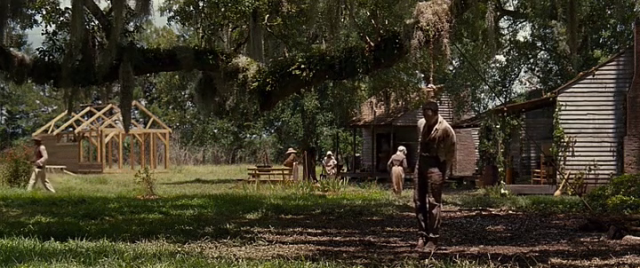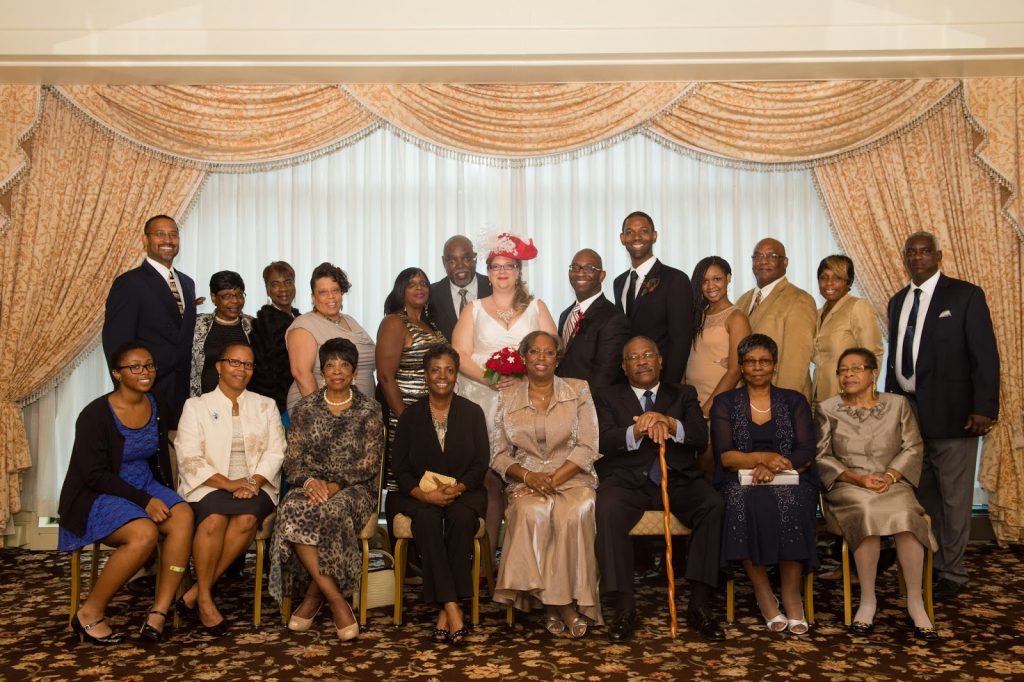I saw the outstanding film 12 Years A Slave the other night, after weeks and weeks of delay.
While long days at work and other commitments kept me out of the theater, most days I just wasn’t mentally and emotionally prepared to watch it. Some days I don’t want to think about slavery, America’s original sin.
I already think about slavery often, almost every day. I’m descended from slaves, I studied slave narratives in college with Henry Louis Gates Jr., who is a historical consultant on 12 Years A Slave. Slavery touches how pretty much all of our society plays out today.
And now 12 Years A Slave appears in the age of a black president, at a time of cultivated historical amnesia under which plantation homes are turned into tourist traps, country bands name themselves The Civil Wars and Lady Antebellum, and politicians call healthcare slavery.
But, I digress. Back to pop culture. Here are my thoughts on 12 Years A Slave.
Steve McQueen still isn’t my cup of tea
I admire what director Steve McQueen tries to do. With Hunger, Shame and now 12 Years A Slave, he explores enemies of the status quo to explore the body as commodity. He lets actors of heavy cerebral and emotional intelligence play on camera. However, he’s just stiflingly art school for me to the point of working against his own films. It’s as if his camera hates the people his films are about, it’s so remote and exacting, even in closeup.
For example, in the scene when Solomon (Chiwetel Ejiofor) is sold and placed on a riverboat to Louisiana, any normal director would, ahem, show the riverboat. Not McQueen, who is content to show only the churning rudder that becomes the metaphorical thresher into which Solomon has been thrown.
But I will say his style works here. It works with memoir, which is the artful presentation of a factual life. It’s all true, but with rhetorical intent. Without the Hollywood gloss. This movie would have fallen on its face with Hollywood sheen.
The film is not body horror
12 Years A Slave is no more body horror than Saving Private Ryan, or Schindler’s List, or many, many other historical dramas. The Passion of the Christ is body horror. The Hostel and Human Centipede films are body horror. Cable TV shows Game of Thrones and Spartacus have more body horror.
There are some brutal scenes in 12 Years A Slave, yes, but they aren’t all that explicit, or gratuitous. The implied is usually far worse, as when blood and flesh rise as mist off the unseen backs of Solomon and Patsey when they are whipped. (If the film of Catching Fire depicted Gale’s whipping as it is in the young adult novel, that movie might have drawn an R rating.)
There has been a complaint among film critics that the film focuses on the brutality of masters rather than the fact that they are masters in the first place. That’s only if you weren’t watching the film hard enough. Those viewers forgot the scene where Eliza being sold off from her children. They forget the slave dealer slapping slaves’ buttocks as if they were horses, using “buck” and “wench,” pulling open their jaws to show off their teeth.
Solidarity is for white women
12 Years A Slave also shows how slavery started a divide between white and black women that filters all the way down to problems within feminism in which women or color are marginalized – from the 14th Amendment splitting suffragists and abolitionists in 1868, to black feminist Mikki Kendall creating the hashtag #SolidarityIsForWhiteWomen last August.
In the film, the white mistresses both contribute to and lash out against a system under which their god-fearing husbands would rape slaves with impunity. Mistress Epps (Sarah Paulson) stands up to her husband’s obsession with slave Patsey (Lupita Nyong’o), but ultimately decides to stay in her big house with servants rather than get up and leave. It’s easier, then, for her to throw a decanter of brandy at Patsey’s head.
When the slave Eliza (Adepero Oduye) weeps for her children sold off, Mistress Ford (Liza Bennett) says all Eliza needs is rest and some food and her children will be forgotten. This, from a woman with children of her own.
The fragile position of poor whites in a world of white supremacy
As cruel as Epps is in the film, Solomon in the film may draw the most ire from Ford’s underling, Tibeats (Paul Dano). Anything Solomon does is met with Tibeats’ fierce hostility. And I think this illustrates the rather fragile position of poor whites in a system of white supremacy. That system tells poor whites, who are low on the socioeconomic ladder, that they are still superior to any black person, no matter how educated or moneyed, even if they and blacks live in very similar conditions.
In the essentially feudal system that was the agricultural South, rich whites depended on poor whites to keep black slaves in line. This continued after the Civil War as poor whites and blacks competed for jobs, and similar conflicts emerged in Northern cities as well.
And, just as essential, those poor whites were depended upon to engage in habitual acts of terror to keep the Jim Crow system going. They must keep blacks in their place, in order to assert their own place.
In the film, it’s obvious that Solomon is smarter, more educated, more self-possessed than Tibeats, who hates him for it. When Solomon suggests to Master Ford (Benedict Cumberbatch) that he can raft the timber through the swamp and save everyone time and labor, it’s Tibeats who scoffs — even more when Solomon proves himself right. And it’s telling that Tibeats antagonizes Solomon to goad him into a confrontation, nearly lynches Solomon for it, and Ford sells Solomon off rather than try to stop Tibeats from trying to kill him. And at Epps’ plantation, a white field hand betrays Solomon, who entrusted him with a letter telling his story and pleading for rescue.
Civility and brutality, side by side
For all its depictions of slavery horrors, 12 Years A Slave is a gorgeously shot film. Shots framed with Spanish moss and weeping willows, fields of cotton stretching into infinity. So many of McQueen’s plantation shots would be at home on a postcard.
To some this is a disconcerting disconnect, as if McQueen were making slavery look pretty. Of course he’s not. Gone with the Wind did that.
McQueen uses his painterly compositions to explain how the American slavery system was civilization’s height and total depravity in extremely intimate quarters. Master Ford is a scion of society who goes into rooms filled with naked human beings to purchase as labor and property.
And its horror was compounded by how commonplace its cruelty was. Hence the lingering shots of Solomon hung by the neck with nothing by the toes of his feet to keep him from death. He wants the viewer to hang there with Solomon. And one scene of a lynching was shot at an actual lynching tree.
How far we’ve come, and how far we have to go
After the credits rolled and I began to clear my head to resume my life, that was my thought. I got to exit Solomon’s reality and be home. In 2014. Married to a woman of a different race. With an Ivy League degree. Working in an exclusive profession. And I am, what, six generations removed from bondage?
My parents grew up hearing parents, grandparents and great-grandparents telling slave stories — the very few that were told. When I hear people say that blacks should “get over” slavery, they ignore that slavery and its direct effects are not so long ago. The last widow of a Confederate soldier died in 2008. John Tyler, the 10th president of the nation, who later served in the Confederate House of Representatives, has a living grandson. This is not ancient history.
My paternal grandmother died in 2003 at almost 100. Her mother would have been the child of a slave. My mother was 14 when the Voting Rights Act was passed in 1965. Yet after all that, and the degradation and oppression that lasted generations after emancipation, and the systemic indignities and psychological wounds inflicted that endure to this day and many more days afterward, here I am. Here my family is. We remain. The survivors of survivors.
No matter how much this racist world tries to crush us, strip us of name and history, art and humanity, culture and credit, and expects us to be thankful while choking on dirt, while instructing the dominant that they are the ones of worth and are under attack and threat. We are here. We will continue to be here.
Films such as 12 Years A Slave remind me in the spirit of sankofa, embodied by a bird flying forward while looking backward. Know your past to move into the future. Solomon is carted away when he is rescued, staring back at Patsey, who somehow must survive that living hell.
And every day, I keep trying to live — free, complicated, and fully human — just a little bit more. I owe it to Solomon Northup, to my ancestors, and to myself.
















































































































1 Comment